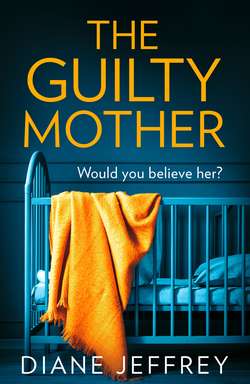Читать книгу Diane Jeffrey Book 3 - Diane Jeffrey, Diane Jeffrey - Страница 20
Chapter 8 Melissa December 2013
ОглавлениеMurder. In my experience – and I’d worked on a few murder investigations in my time as a police officer – the fact that someone had deliberately killed someone else was a given. Our task was to collect evidence and use it to identify the murderer.
But in this instance, the big question wasn’t who had done it, but had murder been committed at all? If the answer was yes, then I was the murderer. It all seemed back to front.
Much of the evidence against me would be circumstantial, but a lot of it would be based on expert opinions. Since the medical experts, in particular the pathologists, had differing opinions, I was charged with two counts of murder in the end. My case was committed to the Crown Court, where my trial – for the alleged murders of both my babies – began six weeks later. It was expected to last a fortnight.
I could feel the eyes of every single person in the courtroom on me as, flanked by two security guards, I was led in that first morning. My legs threatened to give way and it took all my concentration to put one foot in front of another.
I could still feel everyone staring at me after I’d taken my place in the dock. At first I kept my eyes down, but then I became worried about how that would make me seem. Did I look guilty? So, I glanced around me. It was far bigger than the courtroom at Bristol Magistrates’ Court, where my committal proceedings had been held.
And yet, this courtroom, with its wooden pews and wood panelling and very little natural light, was forbidding and claustrophobic. There were far more people here than at my committal hearing; the gallery was packed to the hilt. I tried to find a sympathetic soul to concentrate on, but as I scanned the crowd, I saw only unfriendly faces. I desperately needed my husband and my best friend, but Michael and Jenny, who would be called as witnesses for the defence, weren’t allowed in court until it was time for them to give evidence.
As they were sworn in or affirmed, I studied each juror in turn, peering through strands of hair that had fallen in front of my face. There were six men and six women. Five of the men and three of the women looked very young, barely out of their teens, and I doubted they had children of their own. Some of them had chosen the affirmation rather than the oath. I didn’t know if there were any conclusions to be drawn from this.
Two female jurors appeared to be around the same age as me. I had no idea if that was a good thing or a bad thing. Would they sympathise with me or judge me? One of them was matronly and I imagined she had a large family. The other was skinny and wearing shabby clothes. She stumbled over the words of her affirmation as she read it. I hoped this was due to nerves. If she struggled with reading, what chance did she stand of grasping legal proceedings? As soon as this thought entered my head, I realised I shouldn’t have judged her. She would be judging me.
Finally, there was a woman of African descent, whose age I could not determine, and an elderly man in his sixties, a grandfather, perhaps, who might have been part Asian. They were the only two people in the jury box who weren’t white. Both of them took the oath. The man was bearded and sprightly. His kind face was distorted and his forehead was crinkled into a frown. I could tell he didn’t want to be here and I could relate to that. The woman stared at me and I tried not to flinch as her large black eyes locked on to mine.
